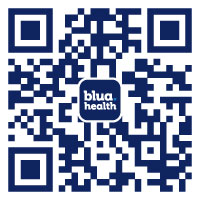A cystoscopy is an examination of the inside of the bladder (the baglike organ that stores urine in the body) using a thin, flexible, tube-like telescope called a cystoscope. This instrument is carefully passed up the urethra (the tube that carries urine out of the body) and into the bladder. A cystoscopy is useful for finding out what is causing your symptoms, or as a check-up for certain bladder conditions. During the procedure, the doctor may take a biopsy - a sample of the lining of the bladder - for examination in the laboratory.
Cystoscopy is routinely performed as an outpatient or day case, requiring no overnight stay in hospital. A general anaesthetic is rarely required, although a local anaesthetic jelly is usually applied to the area. In some cases, a sedative injection may be given.
About the procedure
A cystoscopy usually only takes about five minutes to perform, but you will need to allow about 45 minutes for your appointment. The procedure will not hurt, although it may be a bit uncomfortable.
Preparing for the procedure
There are no special preparations for having a cystoscopy. You may eat and drink as usual on the day of the procedure.
Risks of cystoscopy
Cystoscopy is generally a safe procedure. For most people, the benefits of having a clear diagnosis, or quick and effective treatment, are much greater than any disadvantages. However, like all invasive medical procedures, there are some risks. These can be divided into the risk of side-effects and the risk of complications.
Side-effects
These are the unwanted, but usually mild and temporary, effects of a successful procedure. After a cystoscopy, you may feel a small amount of discomfort, which will settle in a few hours. Passing urine afterwards may sting and it is quite normal for the urine to contain some blood (especially if a biopsy is taken) but these symptoms should settle down within 48 hours.
Possible complications of cystoscopy
Your doctor will be very experienced at performing this type of procedure, but, even so, a few cystoscopies are not successfully completed and may need to be repeated.
Other complications are uncommon, but occasionally a urinary tract infection or inflammation may develop, requiring treatment with medicines.
It is also possible for the urethra or bladder to be damaged or perforated during the procedure. This can lead to bleeding and infection, which may require treatment with medicines or surgery. The chance of complications depends on the exact type of procedure you are having and other factors such as your general health. You should ask your consultant to explain how these risks apply to you.
What to expect
You will be asked to empty your bladder just before you have your cystoscopy. When anaesthetic jelly is used, it will be squeezed into the urethra using a syringe without a needle. This may sting at first and will then take effect in two to three minutes. The cystoscope will then be carefully passed into your urethra.
Men may be asked to try and pass urine while the cystoscope is being inserted. This is simply to help relax the muscles - no urine will actually be passed.
Once the end of the cystoscope is in the bladder, salt water will be passed through it to fill the bladder up and make the whole of the lining visible. A tiny light and lens enable the doctor to see if any disease is present.
If necessary, the doctor will take a biopsy of the bladder lining for analysis, using specialist instruments that can be passed inside the cystoscope. This procedure is quick and painless. After the examination, the cystoscope is removed quickly and easily.
After the cystoscopy
As your bladder will be full, you will probably wish to pass urine again.
If you have a sedative, the effects may last longer than you expect, so you should not drive, operate machinery or drink alcohol for 24 hours after your examination. This means that you will have to arrange for someone to take you home.
Once home, its sensible to take it easy for the rest of the day. Most patients feel able to resume normal activities on the following day.
Drinking plenty of water can help reduce the mild stinging that is normal on passing urine for a day or two after this procedure. It can also prevent the development of infection or inflammation. If you develop a high temperature, pain, persistent burning or bleeding, please contact your doctor promptly.
Disclaimer
This information was published by Bupa Group's Health Content Team and has been reviewed by appropriate medical or clinical professionals. To the best of their knowledge the information is current and based on reputable sources of medical evidence, however Bupa (Asia) Limited makes no representation or warranty as to the completeness or accuracy of the Content.
The information on this page, and any information on third party websites referred to on this page, is provided as a guide only. It should not be relied upon as a substitute for professional medical advice, nor is it intended to be used for medical diagnosis or treatment. Bupa (Asia) Limited is not liable for any loss or damage you suffer arising out of the use of, or reliance on, the information.
Third party websites are not owned or controlled by Bupa and any individual may be able to access and post messages on them. Bupa is not responsible for the content or availability of these third party websites. Last updated August 2017.










